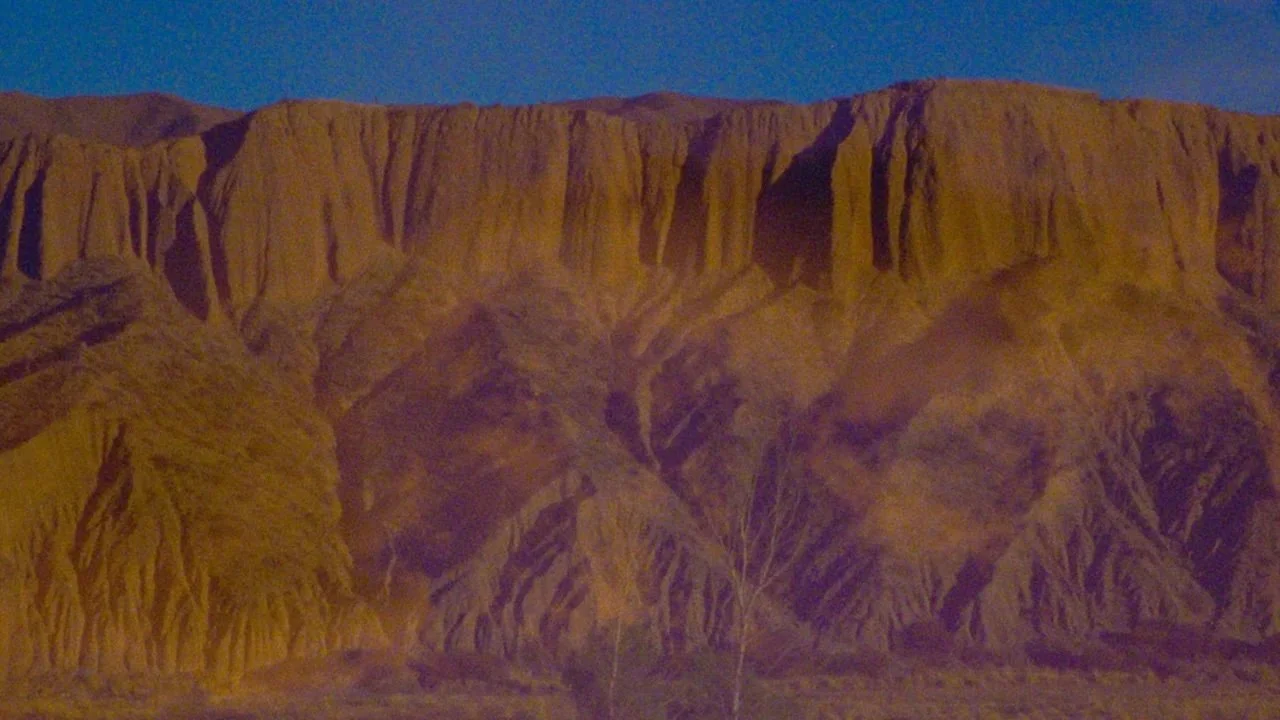
Elemental World Cinema Book Launch & ScreeningCinema Mentiré presents a special evening of mesmerising short films to celebrate the launch of a new book co-edited by Tiago de Luca, who will be joining us in person for this occasion
3 October 2025, 7.00PM | UCL East Community Cinema
To mark the publication of Elemental World Cinema: Cinematic Entanglements of Earth, Fire, Water and Air (Brill), Cinema Mentiré invites you to a programme of contemporary Latin American short films exploring the four classical elements. An edited collection, Elemental World Cinema is the first book-length study to examine the relationship between cinema and the elemental. Rejecting the abstract and overused concept of ‘nature’, the volume centres instead on earth, fire, water and air to offer more concrete and specific perspectives on the intersection of film and the nonhuman in a time of climate emergency.
Hailing from Argentina, Brazil, Chile, Colombia, Cuba, Ecuador and Mexico, the selected shorts span fiction, documentary and experimental film. In them, earth, fire, water and air emerge not only as visually enticing forms but also as powerful lenses through which to reflect critically on some of the most pressing issues of our time, including Indigenous land displacement, resource extraction, and the ongoing legacies of slavery and colonialism. Together, the films offer a rich meditation on the entanglement of the human and the nonhuman, social and physical environments, and the cosmic and the geological.
The screening will be preceded by a conversation with the book’s co-editor, Dr Tiago de Luca, and followed by a drinks reception. This event is supported by the University of Warwick.
ELEMENTAL WORLD CINEMA FILM PROGRAMME
ELEMENTAL WORLD CINEMA FILM PROGRAMME
Trans-apariencia-estéreo-voodoo
Dir. Bruno Varela l 2022 | Mexico | 4’06”
A silent volcanic eruption. Artefacts deprogrammed by beaks and claws for the exploration of other tangible worlds. Digital bricolage.
Altiplano
Dir. Malena Szlam l 2018 | Chile, Argentina, Canada | 15’30”
A geological universe of ancestral salt flats, volcanic deserts, and coloured lakes, fusing earth with sky, day with night, heartbeat with mountain, and mineral with iridescent cloud.
dedonde son loscantantes
Dir. Bruno Varela l 2025 | Cuba, Mexico | 2’48”
From that brief but intense journey to Havana, a colour Super 8 film, shot like a drawing, a bottle on the seashore. A formal, baroque, and structuRuralist exercise.
Tierra mojada
Dir. Juan Sebastián Mesa l 2017 | Colombia | 17’
In the middle of a jungle canyon, the young Oscar finishes making two shallow graves. His house is located in the middle of a large hydroelectric project and it is the last day to evacuate it.
aguaespejo Andino
Dir. Bruno Varela l 2022 | Ecuador, Mexico | 1’31”
High-risk technical diagrams for observing minor presences. Murmurs, subtle forms of existence, light and time traps, and a 16mm camera with shutter problems.
Serpent Rain
Dir. Arjuna Neuman & Denise Ferreira da Silva l 2016 | Germany, Norway, Brazil | 30’
As much an experiment in working together as it is a film about the future. We ask: what becomes of the human if expressed by the elements?
Friday 3 October 2025, 7.00pm
UCL East Community Cinema 1 Pool Street, London E20 2AF
Film programme duration: 71 minutes
FREE ENTRY!
Join us for a glass of wine after the screening 🍷











